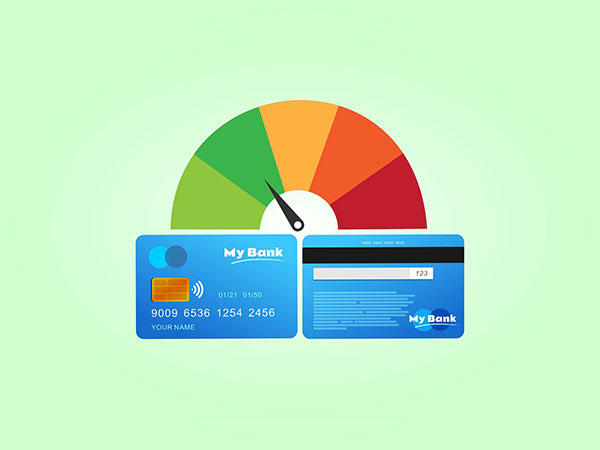Introduction to Credit Scores
In the vast financial landscape of India, where dreams are frequently intertwined with economic realities, the concept of credit scores has emerged as a pivotal player. But let’s unpack this term: What exactly is a credit score? In layman’s terms, it’s a numerical representation that encapsulates your financial history, behavior, and reliability as a borrower. Picture it as a mirror reflecting your creditworthiness to potential lenders, offering them insights into the level of risk associated with extending credit to you. Now, why should this number matter to you or anyone else navigating the intricate maze of loans and financial products in India? The significance lies in its power to either open doors to favorable terms or slam them shut, depending on its magnitude.

What is a Credit Score?
Delving deeper, a credit score is not merely a random number but a meticulously calculated figure based on various facets of your financial journey. It encapsulates your repayment history, outstanding debts, credit utilization ratio, length of credit history, types of credit used, and new credit inquiries. Each of these elements weaves a comprehensive narrative, providing lenders with a holistic view of your financial habits and tendencies.
Importance of Credit Scores
Imagine embarking on a quest for your dream home or launching a startup venture; in both scenarios, securing a loan stands as a critical milestone. Now, picture this scenario: You possess an impeccable credit score, a beacon signaling your fiscal responsibility. Suddenly, doors swing open effortlessly, offering you loans at favorable interest rates, flexible terms, and generous amounts. Conversely, a tarnished credit score can morph into a formidable roadblock, compelling lenders to view you through a skeptical lens, potentially leading to higher interest rates, stringent terms, or outright rejections.
Credit Score Components
Navigating the labyrinth of credit scores necessitates understanding its constituent components, akin to deciphering the intricate layers of a puzzle.
Factors Determining Credit Score
Peeling back the layers reveals a gamut of factors wielding influence over your credit score. Your payment history emerges as a cornerstone, chronicling your track record of meeting repayment obligations. Simultaneously, outstanding debts, credit utilization ratio, length of credit history, types of credit used, and recent credit inquiries collectively shape this numerical beacon.
Weightage of Each Component
While each component contributes to the overarching score, their relative weightage varies. For instance, your payment history carries significant clout, underscoring the importance of honoring financial commitments punctually. Conversely, the length of your credit history offers insights into your experience with managing credit, while credit inquiries reflect your recent interactions with potential creditors.
Loan Approval Process in India
Securing a loan in India orchestrates a delicate dance between traditional methodologies and contemporary approaches, each bearing its distinct nuances.

Traditional Methods
Historically, loan approvals in India hinged predominantly on manual assessments, encompassing exhaustive documentation, rigorous scrutiny, and prolonged processing timelines. This archaic approach, although thorough, often resulted in protracted waiting periods and heightened bureaucratic hurdles, testing the patience and perseverance of applicants.
Modern Approaches
In stark contrast, contemporary times witness a paradigm shift, with technological innovations ushering in a wave of digitization and automation. Lenders now harness sophisticated algorithms, integrating credit scores into their evaluation matrices, fostering efficiency, expediency, and enhanced accuracy. This seamless integration expedites the loan approval process, offering applicants a streamlined experience characterized by reduced turnaround times and heightened convenience.
Credit Scores and Interest Rates
Embarking on a financial journey necessitates navigating the intricate interplay between credit scores and interest rates, a dynamic relationship underpinning loan affordability.
How Scores Influence Rates
Your credit score wields considerable influence over the interest rates proffered by lenders. A stellar score serves as a testament to your fiscal prudence, enticing lenders with its promise of minimal risk. In contrast, a diminished score casts shadows of doubt, prompting lenders to mitigate perceived risks through elevated interest rates, thereby safeguarding their interests.
Practical Examples
To illustrate, consider two hypothetical individuals, each possessing distinct credit scores. The first individual, buoyed by a commendable credit score, attracts lenders eager to extend credit at competitive interest rates. In contrast, the second individual, grappling with a suboptimal score, encounters lenders adopting a cautious stance, reflecting in the elevated interest rates and stringent terms offered.

Steps to Improve Credit Score
Navigating the path to a stellar credit score demands dedication, discipline, and diligence, underscored by a strategic approach.
Regular Monitoring
Embarking on this journey mandates vigilance, necessitating regular monitoring of your credit score. This proactive approach empowers you with insights into your financial landscape, facilitating timely interventions and informed decisions.
Timely Payments
A cornerstone of credit score enhancement resides in honoring financial obligations punctually. Cultivating a habit of timely payments not only augments your credit score but also fosters fiscal discipline, laying a robust foundation for sustained financial well-being.
Impact of Low Credit Score
Confronting the ramifications of a diminished credit score unveils a myriad of challenges, particularly in the realm of loan approvals.
Rejection Rates
A suboptimal credit score amplifies the specter of loan rejections, as lenders gravitate towards applicants exuding fiscal responsibility and reliability, minimizing perceived risks in the process.
Limitations in Options
Furthermore, a diminished credit score curtails your loan options, relegating you to avenues characterized by elevated interest rates, stringent terms, and limited flexibility, constraining your financial horizons.
Benefits of a Good Credit Score
Conversely, a pristine credit score unfurls a tapestry of benefits, illuminating a pathway replete with favorable terms and enticing opportunities.
Lower Interest Rates
A stellar credit score beckons lenders with its promise of minimal risk, enticing them to extend credit at competitive interest rates, translating into tangible savings and enhanced affordability.
Higher Loan Amounts
Moreover, a commendable credit score amplifies your borrowing capacity, empowering you to secure higher loan amounts, facilitating the realization of ambitious endeavors and aspirations.

Future Trends in Credit Scoring
Peering into the horizon unveils a landscape replete with technological innovations and transformative trends, reshaping the contours of credit scoring.
Technological Advancements
Emerging technologies, encompassing artificial intelligence and machine learning, herald a new era characterized by enhanced efficiency, accuracy, and predictive capabilities, revolutionizing credit scoring methodologies and practices.
Predictive Analysis
Harnessing the power of data analytics and predictive algorithms, lenders glean insights into future credit behaviors, fostering informed decision-making and risk mitigation strategies, fortifying the financial ecosystem against uncertainties and vulnerabilities.
Case Studies
Embarking on a journey through real-life case studies illuminates the tangible impacts of credit scores on loan approvals, offering insights into prevailing trends, challenges, and opportunities shaping the financial landscape of India.
Conclusion
In conclusion, credit scores exert profound influence over loan approvals in India, serving as a beacon guiding lenders and borrowers alike through the intricate labyrinth of financial products and services. By cultivating a stellar credit score, individuals can unlock a myriad of opportunities characterized by favorable terms, enhanced affordability, and heightened flexibility, paving the way for sustained financial well-being and prosperity.
FAQs
- What is considered a good credit score in India?
- A credit score above 750 is generally deemed favorable by lenders, signaling fiscal responsibility and reliability.
- Can a low credit score be improved?
- Absolutely! With dedicated efforts, including timely payments, responsible credit utilization, and strategic financial management, you can enhance your credit score over time.
- How often should I check my credit score?
- It’s advisable to monitor your credit score at least quarterly, enabling timely interventions and informed decisions.
- Do lenders solely rely on credit scores for approvals?
- While credit scores wield considerable influence, lenders adopt a holistic approach, considering multiple factors, including income, employment history, and financial obligations, ensuring comprehensive evaluations and informed decisions.
- Are there any quick fixes for improving credit scores?
- Beware of purported quick fixes promising instantaneous credit score enhancements. Instead, prioritize long-term strategies encompassing responsible financial management, timely payments, and strategic credit utilization, fostering sustained improvements and financial well-being.




